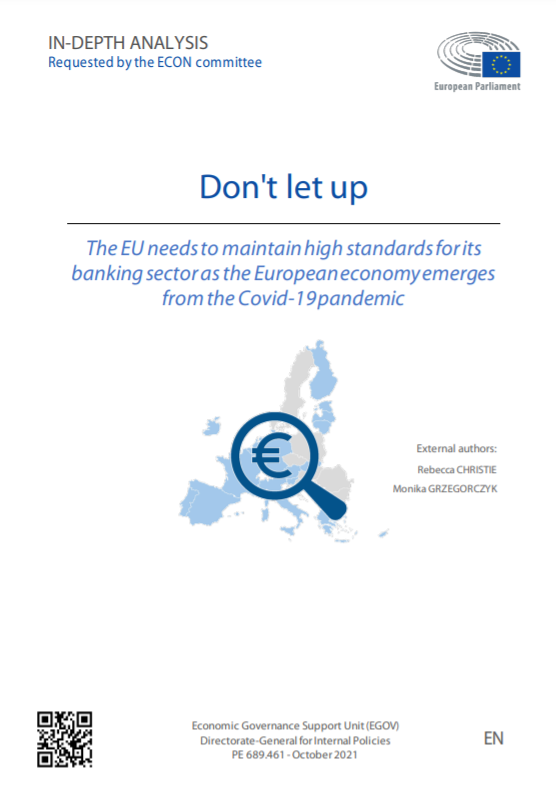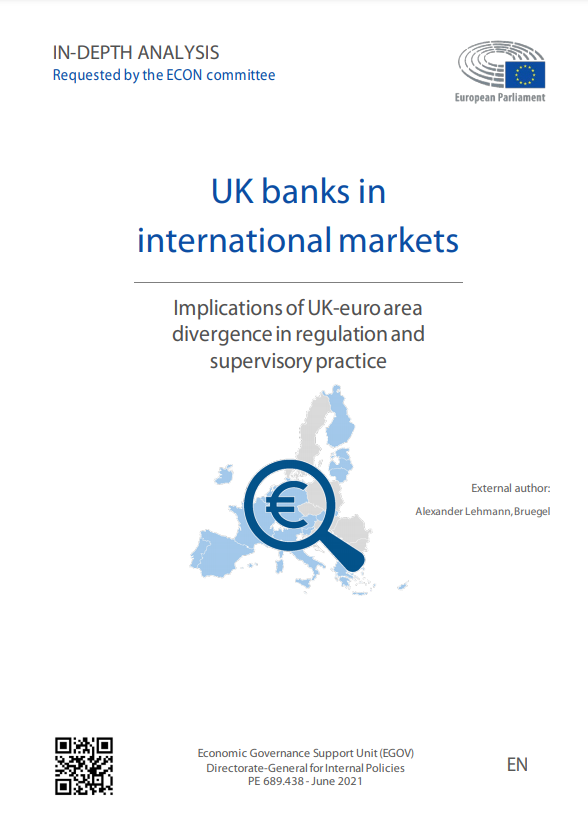Opinion
Brexit banking exodus creates a dilemma for Dublin
Irish consumers’ interests may not coincide with the needs of banks relocating here.
This article was first published by the Irish Times

Europe’s financial centre is splitting up, possibly for the better. Dublin has gained a lot of new business from London’s exodus, becoming the top choice of firms seeking higher ground post-Brexit. Now Ireland must decide whether it wants to be a leader or a counterweight in Europe’s financial future.
With the departure of the UK as the financial industry’s primary voice, the EU will have a chance to redefine how it approaches its banking and capital markets.
Already, debates have begun about making the regulatory framework more centralised or enabling a more regionally diverse and competitive financial sector. Proponents of a homogenous approach argue that a level playing field requires common rules, otherwise EU markets will never reach the level of integration necessary to prosper on a global scale. But other countries, including Ireland, have made the case that member states continue to bear individual risks and need a corresponding amount of regulatory freedom.
Some challenges, like anti-money laundering, remain constant whether Brexit happens or not. Also, Europe cannot indefinitely sustain the current tension between regulators in the ‘home’ countries of firms’ financial headquarters and the ‘host’ countries where they do much of their business. ‘Muddle through’ is a stopgap, not a plan of its own, and the EU27 will need to confront its shortcomings in areas like deposit insurance, insolvency rules and cross-border banking, especially for those countries already inside the euro.
Crosshairs
The EU will take a fresh look at its regulatory programme when it instals new leadership later this year. Ireland will find itself in the crosshairs. On the one hand, it must protect its own interests. On the other hand, firms like Bank of America and Barclays that have chosen Ireland as their new EU hub will expect help navigating the rulemaking for all of Europe, not just their operations on the Emerald Isle.
This creates a conundrum. For example, under a centralised regime, any country that is home to a big bank could also be on the hook for all of its rescue or resolution costs in an emergency. At the same time, forcing banks to fragment their books could result in unnecessary isolation for offices in one country from their siblings in another, raising the risk that a bank wouldn’t be able to ride out a wave of crisis contagion.
The interests of the Irish consumer face similar trade-offs. Taxpayers should never again be asked to offer unlimited guarantees to the banking sector. Even so, the entire economy benefits when financial firms expand their Dublin presence. This gives the average household a stake in creating a sturdier European financial architecture overall rather than taking a strictly defensive stance.
In the long run, the euro area clearly needs a better comprehensive safety net – a full-fledged deposit insurance scheme that makes a euro equally safe in any bank, in any country, across the entire monetary union. This would insulate ordinary account holders from the fallout of a new crisis by curbing bank runs from one country to another.
In the short run, Europe doesn’t have the political will to put the necessary new system in place. As a result, negotiators face the tough task of finding an incremental path forward without exposing ordinary citizens to undue risk. Politicians will need to consider all of their constituents and find a way to balance those interests.
Complication
Ireland’s land border with the UK adds an extra complication, just as it casts a shadow across every other area of Brexit talks. In theory, there shouldn’t be any connection between the border backstop and financial sector preparations. That said, it’s impossible to rule out the ricochet effect from an unexpected policy confrontation. This also could lead voters to have different priorities than Dublin-based international banks.
The financial industry will want a steady approach from Ireland’s representatives to Brussels, given the length and complexity of the rulemaking process. But if the border discussions were to go seriously wrong, the Irish people might not want a business-as-usual approach to regulatory compromise. No one wants this kind of showdown, but Irish policymakers will have to keep it in mind.
With so much of the debate focused on risk, it’s important to remember that there are benefits as well. British voters who support leaving the EU may welcome a smaller London, less dominated by global finance while still maintaining its core expertise. In turn, the shift to new financial centres offers European policy makers the chance to build a “something for everyone” approach that brings jobs and growth to a diverse group of locations.
Brexit remains a giant question mark, in terms of how, when and even if the UK will manage to leave – the current state of limbo could stretch on for years, but financial companies are moving out of London regardless. Dublin has been happy to offer them a new physical home. Ireland must decide what kind of political presence should follow.
Republishing and referencing
Bruegel considers itself a public good and takes no institutional standpoint.
Due to copyright agreements we ask that you kindly email request to republish opinions that have appeared in print to [email protected].






















